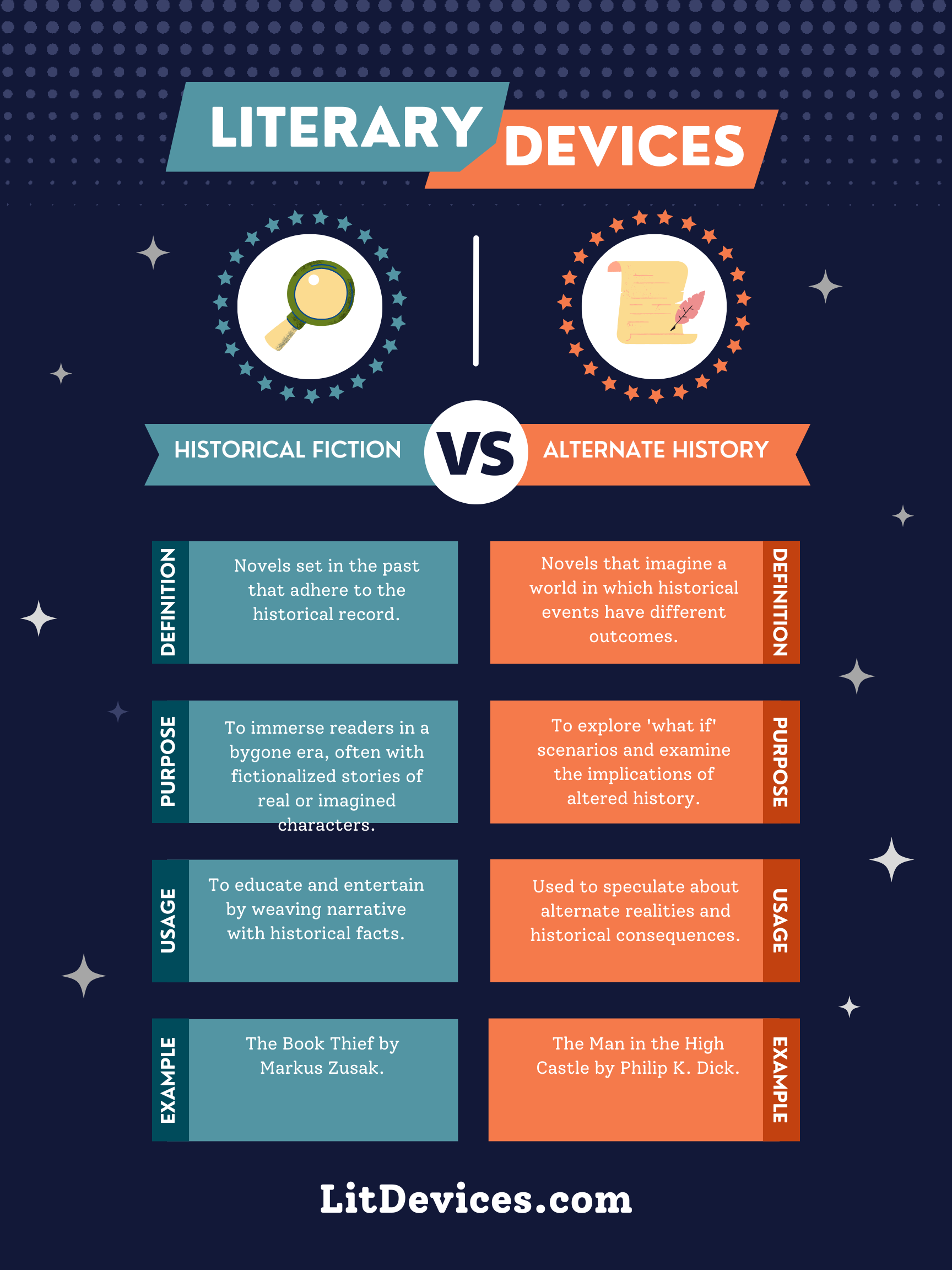Historical Fiction novels are set in the past and incorporate real events and people with fictional elements; Alternate History explores what might have happened if certain historical events had occurred differently.
Both genres offer a rich tapestry of possibilities, from the intricately researched settings of historical fiction to the speculative twists of alternate history. Let’s delve into these intriguing literary realms. 📚🕰️
Historical Fiction
Historical fiction immerses readers in bygone eras, blending factual historical context with fictional stories. Ken Follett’s “The Pillars of the Earth” is a prime example, depicting the construction of a cathedral in the fictional town of Kingsbridge during the 12th century, with a backdrop of actual historical events.
Alternate History
Alternate history asks “what if” and reimagines the world as it might have been with different historical outcomes. Philip K. Dick’s “The Man in the High Castle” explores a 1962 in which the Axis powers won World War II, showcasing a divided and occupied United States.
Summary
| Literary Device | Definition | Purpose | Usage | Relevant Examples |
|---|---|---|---|---|
| Historical Fiction | Novels set in the past that incorporate real events and people with fictional elements. | To immerse readers in and educate them about historical periods through narrative. | Novels, short stories, movies. | “The Pillars of the Earth” by Ken Follett. |
| Alternate History | Explores what might have happened if certain historical events had occurred differently. | To speculate on different historical outcomes and their impacts on society. | Novels, short stories, movies, TV shows. | “The Man in the High Castle” by Philip K. Dick. |
Writing Tips
For Historical Fiction:
- Research Thoroughly: Ensure historical accuracy to create a believable and immersive setting.
- Blend Fact with Fiction: Use real historical events and figures as a backdrop for your fictional story.
- Focus on Authenticity: Pay attention to the details of daily life in the period you’re writing about to bring your setting to life.
For Alternate History:
- Identify the Point of Divergence: Clearly establish the moment history changes from our known timeline.
- Consider the Ripple Effects: Think through the logical outcomes of the historical change across politics, culture, and daily life.
- Maintain Plausibility: Even within speculative scenarios, keep the developments and outcomes within the realm of believability.
FAQs
Can a book be both historical fiction and alternate history?
While rare, some narratives might blend elements of both, using historical settings and characters to explore alternate outcomes.
How important is historical accuracy in alternate history?
Accuracy is crucial up to the point of divergence; from there, the writer’s speculative changes take precedence, but they should be well-reasoned and plausible.
Exercise
Read the following excerpt: “In the shadow of the Eiffel Tower, now draped with the flag of the British Empire, Jacques pondered the victory at Waterloo that never was, and how the world had changed.”
Answer: This passage suggests an alternate history scenario, imagining a world where the British Empire controls Paris, hinting at a different outcome at Waterloo.
Other Interesting Literary Device Comparisons
- Science Fiction vs Fantasy: Both genres explore worlds beyond the ordinary, but science fiction often relies on scientific and technological advancements, while fantasy involves magic and mythical beings.
- Memoir vs Autobiography: Both are non-fiction narratives of a person’s life, but memoirs focus on specific experiences and their emotional truth, whereas autobiographies cover the breadth of the author’s life.
- Mystery vs Thriller: Mystery novels involve solving a crime or unraveling a secret, typically emphasizing the puzzle aspect, while thrillers focus on creating suspense and excitement, often featuring danger and high stakes.
These comparisons reveal the vast spectrum of storytelling techniques and the endless possibilities they present for writers and readers alike. 📘✨

